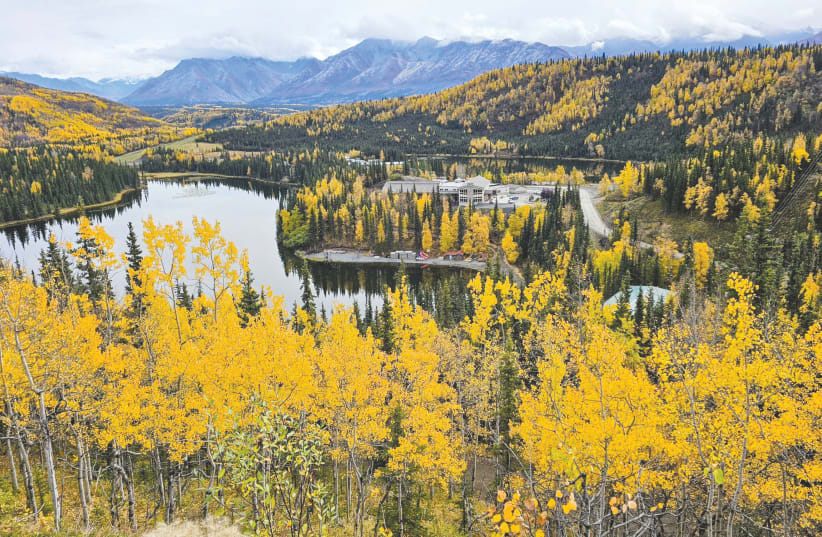In the wake of profound societal trauma, particularly among Israeli and Jewish families affected by the ongoing war, I find myself reflecting on a transformative journey my family and I undertook.
As part of our emissary mission with Bedein – Agents of Hope, we explored the breathtaking wilderness of Alaska and the neighboring Canadian Yukon province.
Immersed in nature’s stunning landscapes, I documented several extreme nature resorts and witnessed firsthand the healing potential that these environments offer.
Our experiences in these serene settings opened my eyes to nature’s remarkable ability to foster emotional processing and restoration.
Each retreat served as more than just a picturesque backdrop; it became a sanctuary for connection and introspection.
The breathtaking wildlife and natural beauty around us were not merely aesthetic; they were instrumental in facilitating a powerful therapeutic process.
This journey underscored an urgent truth: we must create accessible retreats for those grappling with trauma, especially in light of the rising antisemitism and recent atrocities that have compounded societal wounds.
The mental health community desperately needs spaces for rehabilitation where individuals and families can reconnect with themselves and the world around them.
As trauma and mental health challenges continue to escalate globally, we are witnessing a significant shift in healing paradigms.
The profound impact of nature on healing
Increasingly, practitioners and trauma survivors are recognizing the profound impact of nature-based retreats and wildlife encounters.
These experiences transcend conventional therapy, offering restorative environments that can calm the mind, relieve stress, and cultivate resilience – benefits that can be found only in the embrace of the natural world.
The concept of “ecotherapy” or “nature therapy” is gaining traction as research reveals its effectiveness in treating symptoms of trauma, including post-traumatic stress disorder (PTSD), anxiety, and depression.
A pivotal study by Bratman et al. (2015) found that spending just 90 minutes in a natural setting reduces neural activity in areas of the brain associated with mental illness.
Such findings illustrate how immersion in nature can directly enhance mental clarity and emotional well-being.
Equally important are the benefits of wildlife encounters.
Research in animal-assisted therapy shows that interactions with animals can lower blood pressure, reduce cortisol levels, and improve mood – crucial for those affected by trauma. Engaging with wildlife fosters trust, lowers hypervigilance, and aids emotional regulation, creating a healing atmosphere that nurtures recovery.
Around the world, programs like Project Healing Waters in Alaska are already harnessing nature’s therapeutic power.
These initiatives immerse trauma survivors – like veterans and first responders – in activities such as hiking, fishing, and wildlife observation, demonstrating the effectiveness of structured nature experiences for recovery.
However, the promise of nature-based healing must be further integrated into mainstream trauma treatment.
While traditional therapeutic settings can feel restrictive, natural environments offer a liberating sanctuary.
Schools, workplaces, and community centers must embrace ecotherapy concepts, transforming green spaces into vital hubs for emotional support.
As Dr. MaryCarol Hunter, an ecotherapy expert at the University of Michigan, emphasizes, “Nature is not a luxury; it’s a necessity.”
This perspective must shape our approach to mental health, recognizing that access to nature is crucial for fostering resilience and healing.
In light of these insights, I urge mental health professionals, community organizations, and policymakers to prioritize the development of nature-based retreats.
By creating accessible spaces for emotional recovery, we can provide a path for trauma survivors to reconnect with themselves and rebuild their lives.
The journey toward healing can begin with a simple step into the natural world.
Together, we can support a new era of trauma recovery – one where nature serves as a restorative force, offering solace, strength, and, ultimately, healing.
The writer is on a family emissary mission across North and Central America and is the curator of Healing Nature Retreats and Resilience Experiences.









